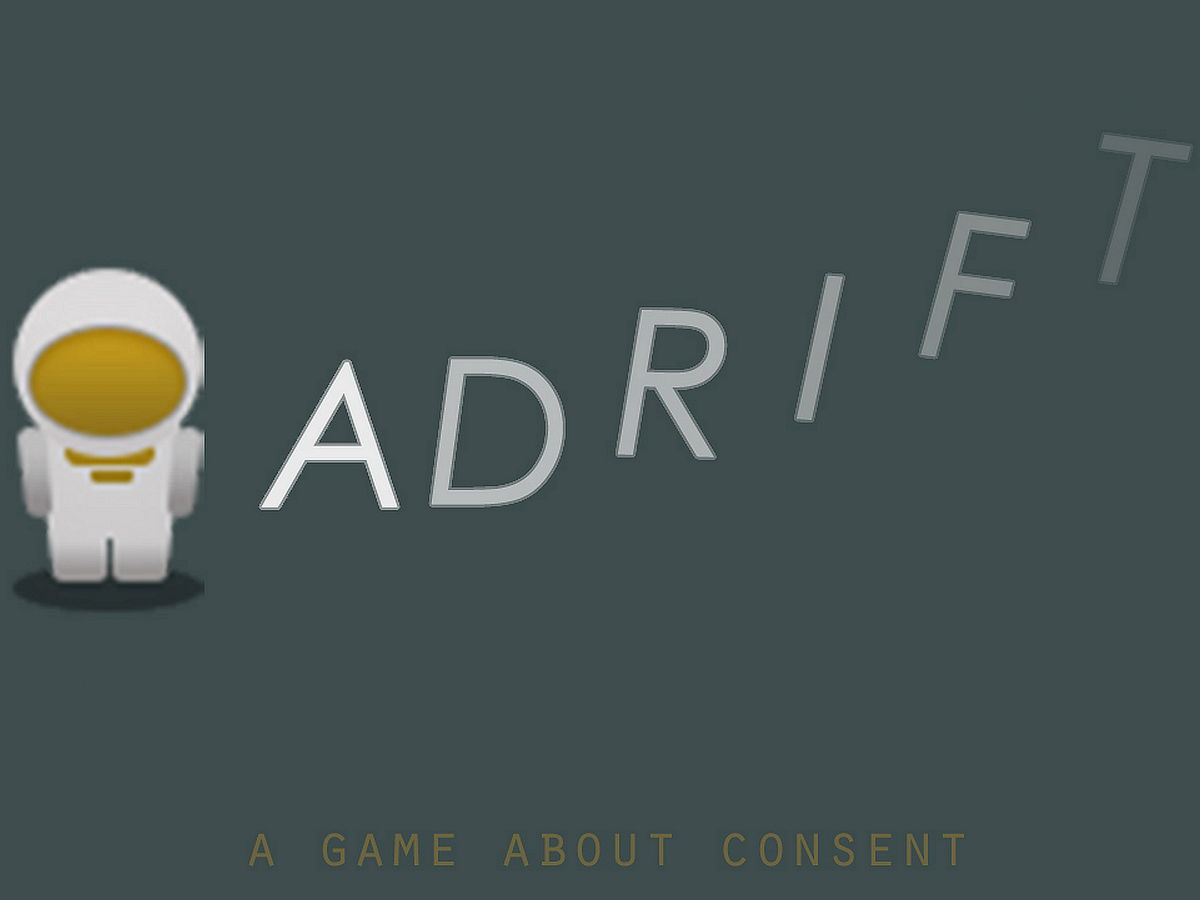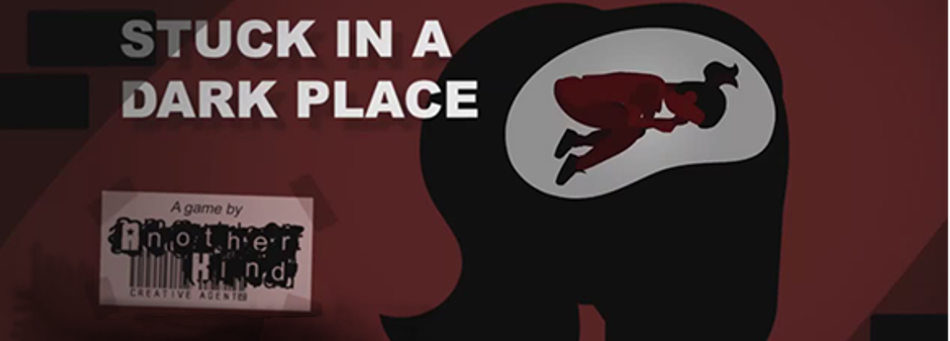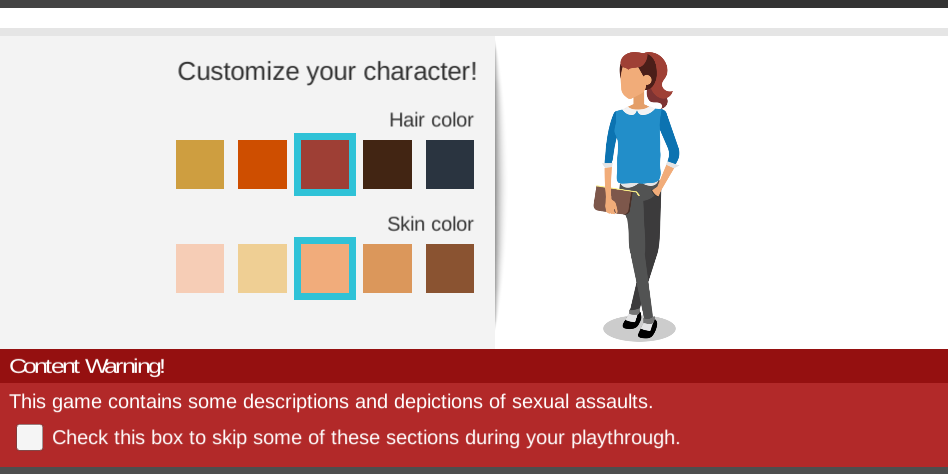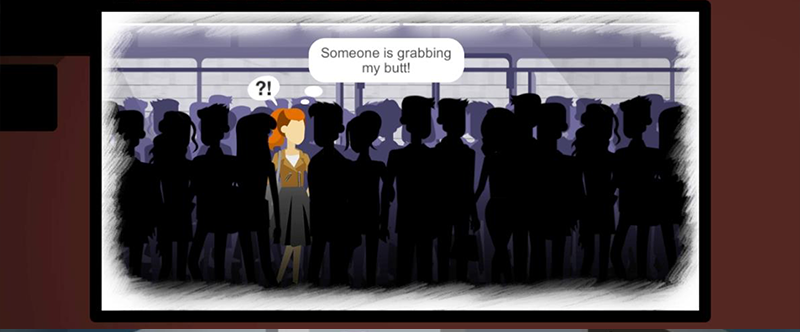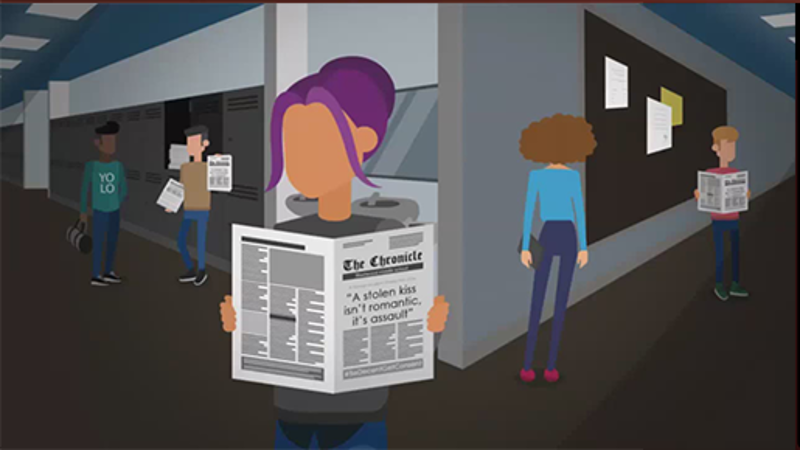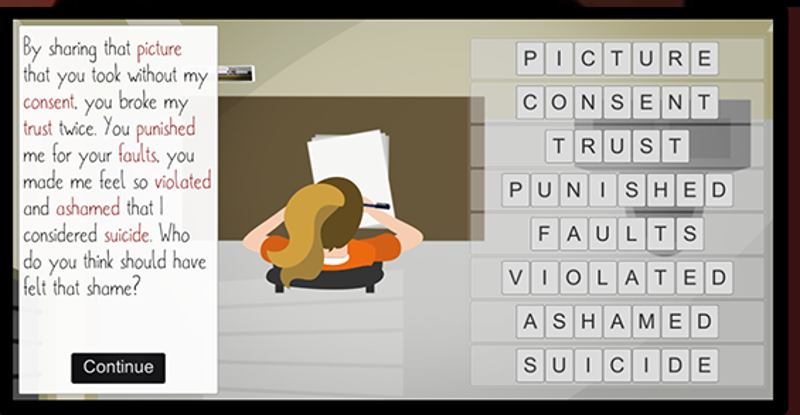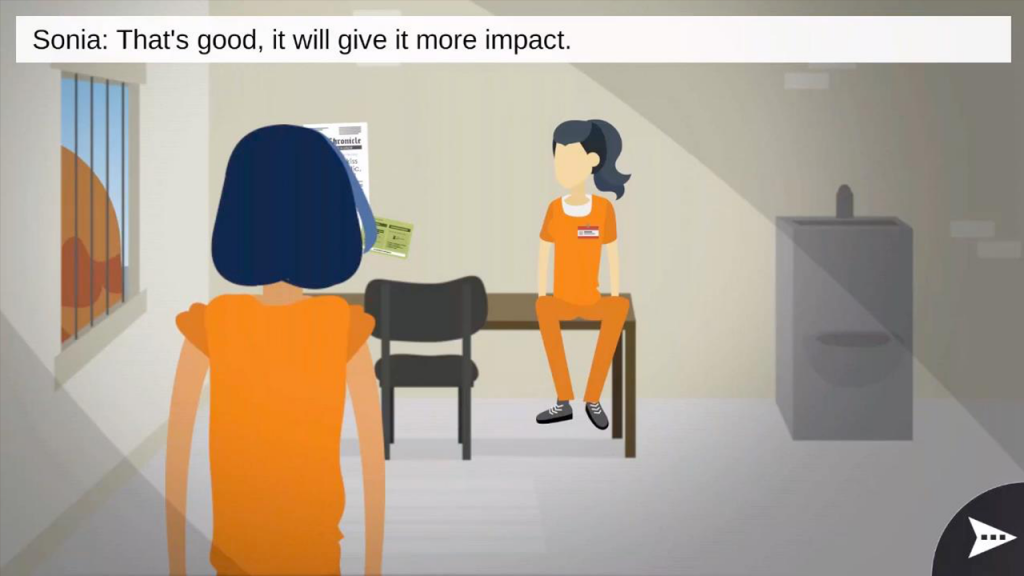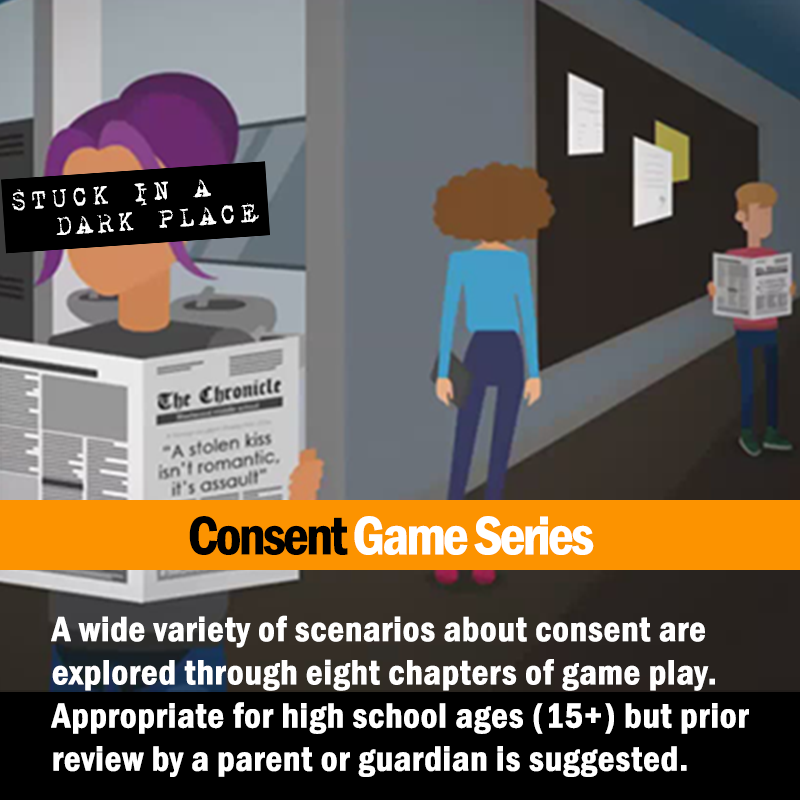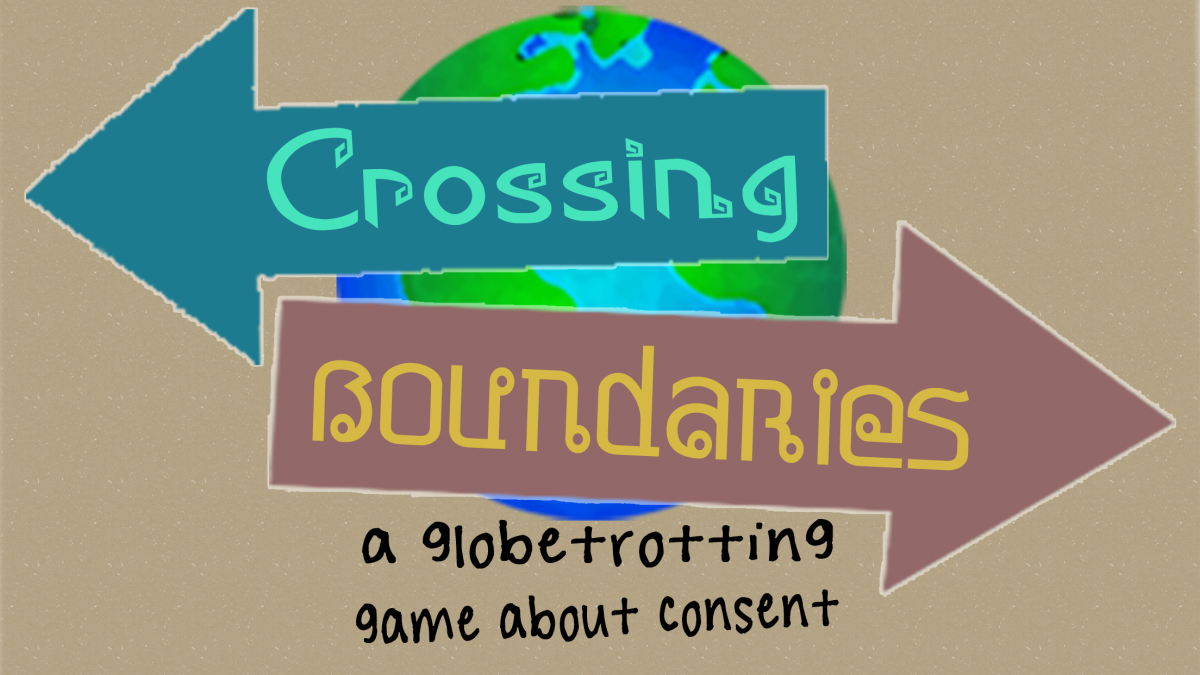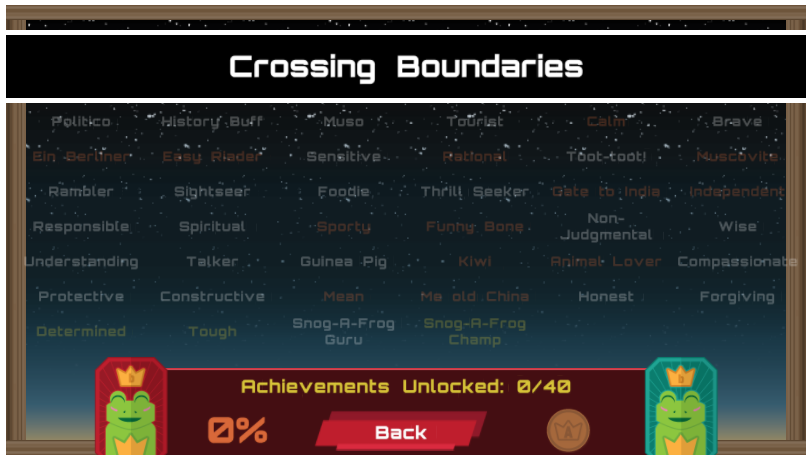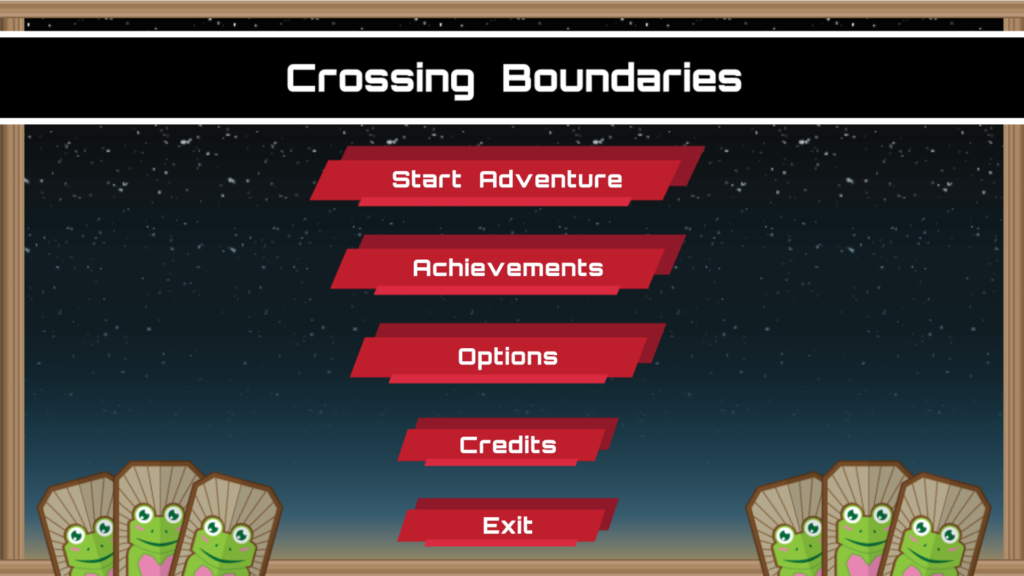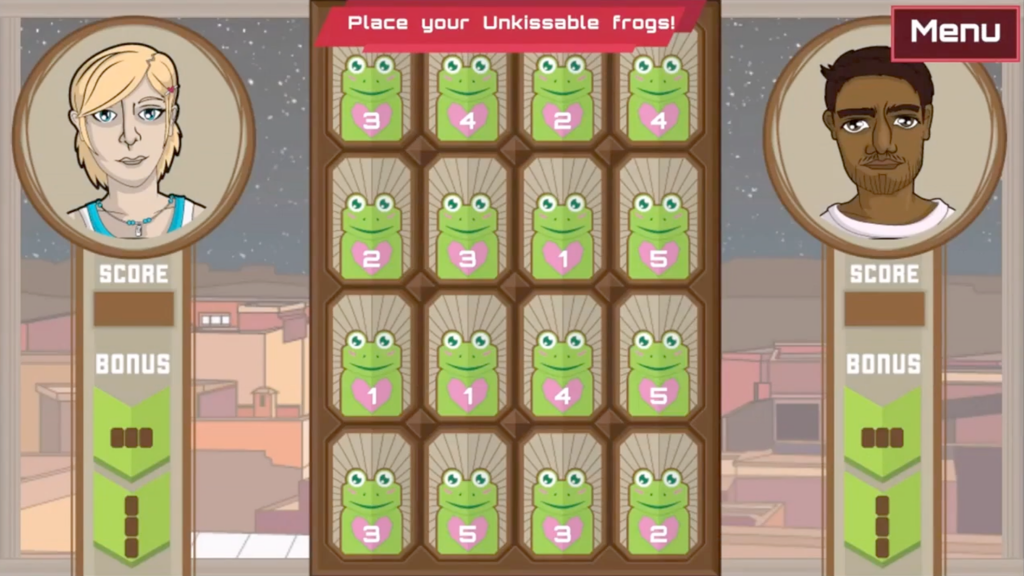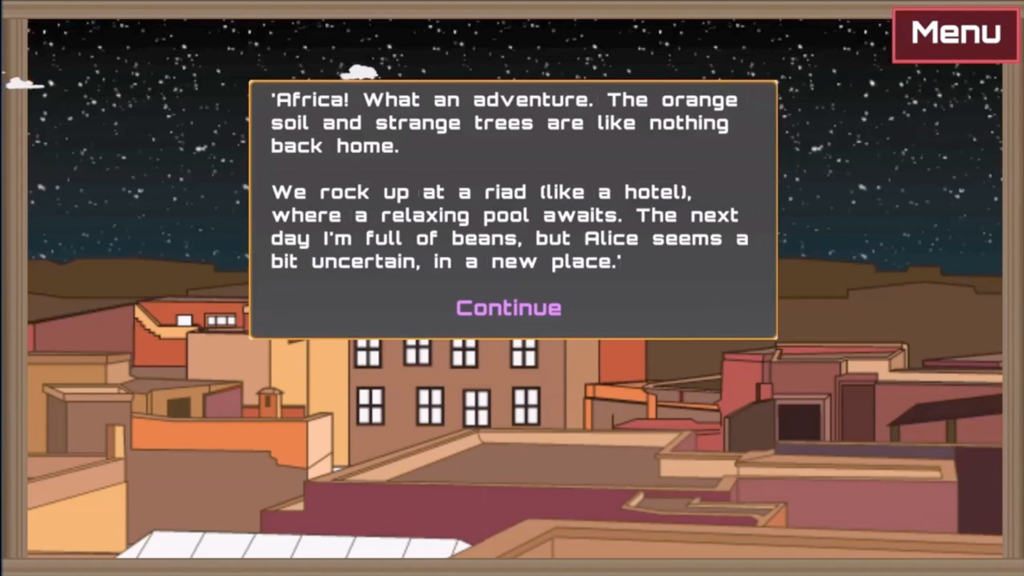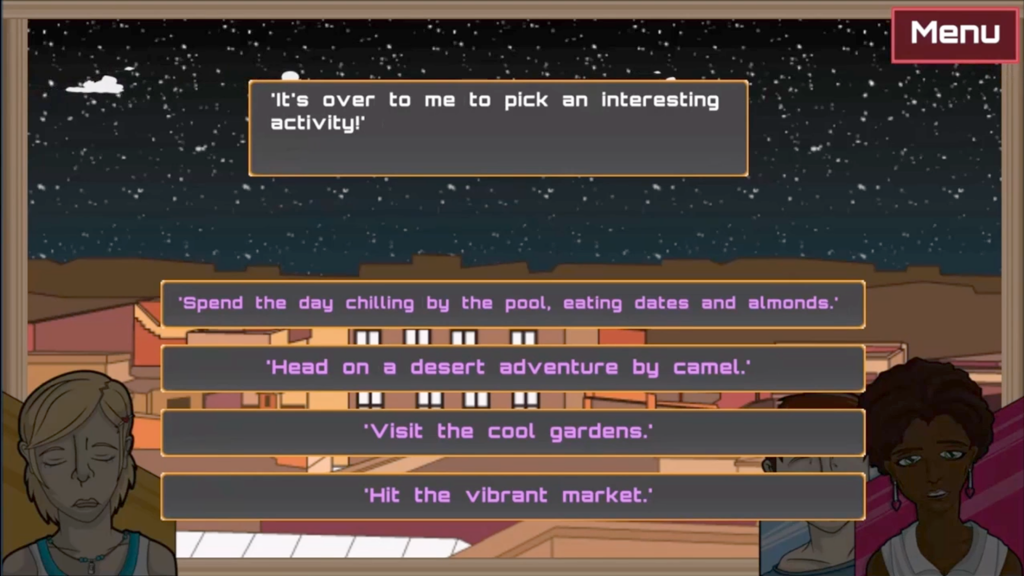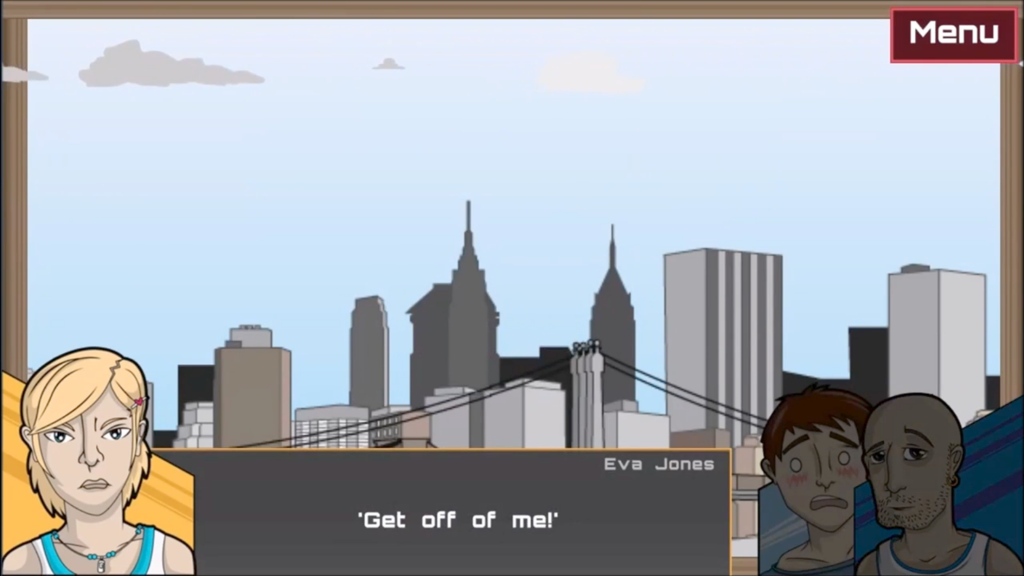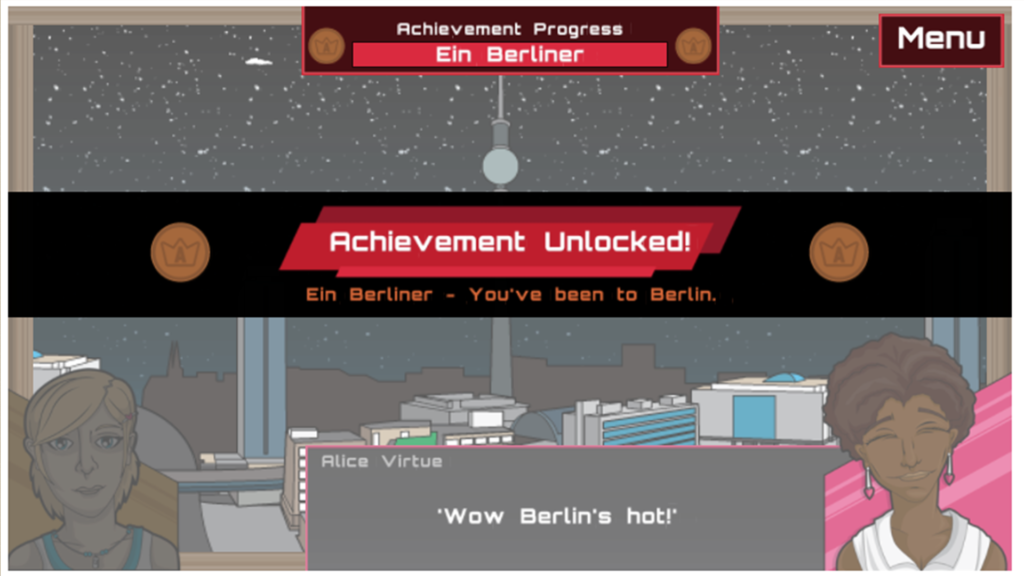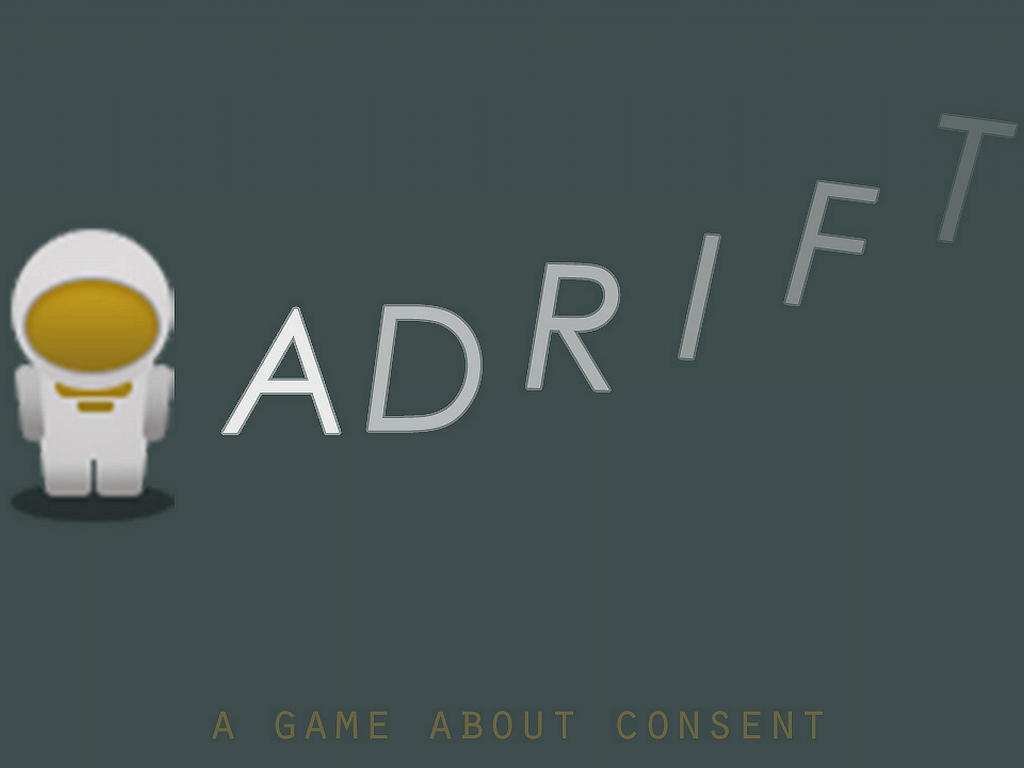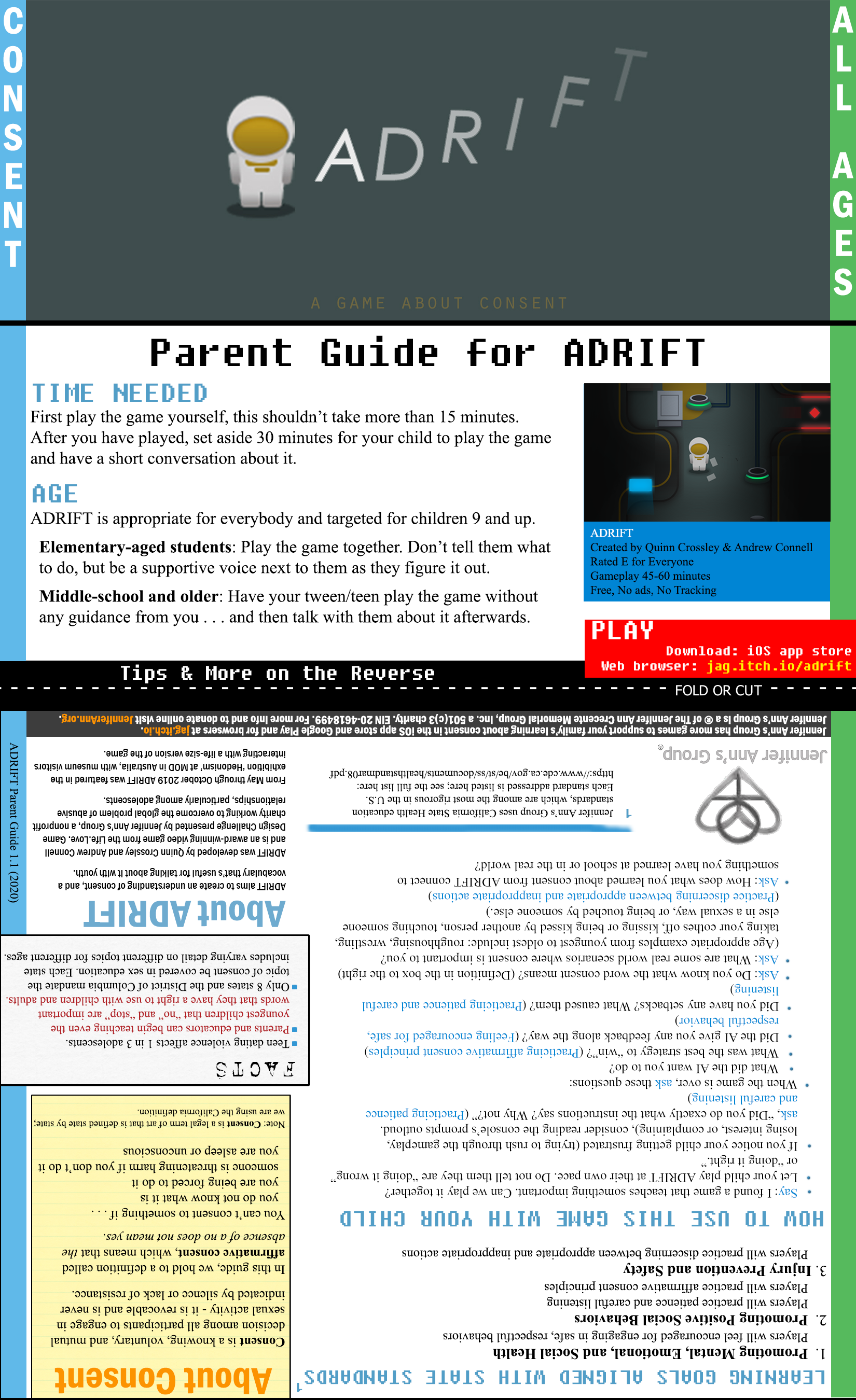An interview with the game developers of the popular consent game ADRIFT.
In 2017, we had the privilege of bringing a unique game about consent to life – in more ways than one. In ADRIFT, you play as a member of an interstellar salvage crew exploring an abandoned spaceship. Since then, the game has been played and downloaded by players around the world.
And in 2019, the MOD. museum at the University of South Australia built a life-size version for their patrons to play and experience. The family-friendly tone of ADRIFT made it a good fit for public exhibition. As our Executive Director, Drew Crecente, says, one of the best aspects of ADRIFT is people get to learn about consent without being traumatized in the process.
“learn about consent without being traumatized in the process”
This is a primary goal of our nonprofit group’s Gaming Against Violence program. The program publishes pro-social games, games that promote positive and constructive messages in a compelling way without resorting to violent narratives and imagery.

We recently got to sit down with the original developers of ADRIFT, Quinn Crossley (he/him and they/them) and Andrew Connell (he/him), to learn what they’ve been up to since creating ADRIFT. The designers, former roommates, and good friends shared a bit about life post-ADRIFT and offered a few tips for aspiring video game developers.
What attracted them to the Consent Contest?
We started off by asking Connell and Crossley what attracted them to our annual non-violent game design challenge; did they have experience with prosocial gaming before? They both expressed that, while the term “prosocial gaming” was new to them, they had already been working in educational game development. They liked the idea that the consent video game competition would give them a tangible goal to start working towards.
“We have the skillset, we have the time . . . both of us want to make things that matter,” Connell said.
And, why are we talking about consent on a spaceship?
Crossley says the choice to be on a spaceship and interacting with computers is very intentional: who we interact with can influence the direction of a conversation. When that conversation isn’t grounded in a familiar reality – unless you’ve been an explorer on an abandoned spaceship – it allows for any discussions about consent to occur in a new light; as Connell puts it: “symbolism in a different context.”
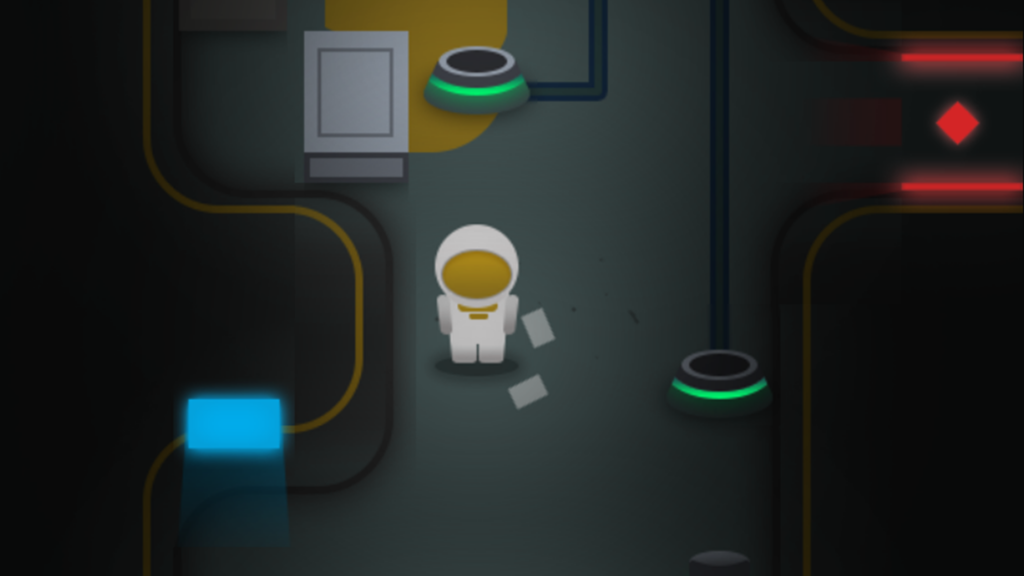
The two previously worked on a game called Managing at Home. In that game the player’s character is a cancer patient navigating the first three days of chemotherapy, from what food they eat to how they cope with the side effects. Crossley shared that the game involved a lot of consent-adjacent conversations like bodily autonomy, decision making, and bigger questions about how we treat ourselves and how we treat others.
Bringing ADRIFT to Life
ADRIFT was published in September 2017 and as far as the games’ designers were concerned that was the end of the story. They were pleased with the game they’d created and happy to know that people were playing it to learn about consent.
But more than a year later “. . . we just get this email at like 3 in the morning, on a random weekday from some museum in Australia . . . we didn’t think this project had any more happening with it!” according to Crossley.
A museum in Australia was reaching out because it wanted to re-create their video game into a lifesize exhibit that visitors to the museum would interact with!
“We wanted to make a little change in the world and this got way more attention than we ever anticipated.”
“way more attention than we ever anticipated”
They were used to working the other way around – an organization would commission them and outline exactly what they needed and they would create a game based on that vision. This time though, someone wanted to adapt a game that they had designed.
“It was really validating in a way,” says Connell. Although ADRIFT has had much success it originally received fourth place in the consent game design competition.
“To see that it’s gone this far is really surprising.”

The museum exhibit, entitled hedonism, launched October 2019 at the MOD. museum and explored themes around healthy sexual relationships and consent. A life-size version of ADRIFT was born and relabeled as F. A. B. L. E.
“Welcome, Operative, to F.A.B.L.E. – aka the Federated Association of Believers, Leaders, and Explorers. Your mission is simple: teleport on board this foreign spaceship and connect with the alien. As you explore this new world, there are protocols to follow. Make sure you check in with the alien as you go, follow the principles of consent, and achieve a two-way flow of information that will benefit both of our races.”
F.A.B.L.E.
On Being Game Developers
What are the best and worst parts of being a game developer?
Connell immediately answered, “all of it!” while Crossley laughed in agreement.
They both agreed the feedback can be both the best and the most difficult part of being game developers. Crossley shares that he loves seeing how people emotionally react to their work, even if it’s in frustration. It’s wonderful for them to see how games can create bonds between people.
“It’s cool to put something out in the word for people to connect over, but at the same time it’s hard to manage all the feedback…You can’t make everyone happy,” he shares. “I like making people feel stuff but also… it’s hard.”
Connell agrees, “we like to make people feel stuff, but we don’t want people’s feedback to make us feel too many things back. It can feel great to help people but since you put so much time and energy into it, it can feel really bad when it doesn’t go well.”
“we like to make people feel stuff, but we don’t want people’s feedback to make us feel too many things back”
“It’s vulnerable for sure, but it can be really rewarding. You have to harness a lot of strength to share those pieces of yourself,” Crossley adds.
Advice For New Developers
It can take time to develop that strength for newer developers. Crossley says any time you put your art there, you are being vulnerable. Connell adds that it’s easy to feel vulnerable because you’re opening yourself up to criticism whenever you put yourself on the internet. The gaming industry can be a tough industry for newcomers.
The gaming industry can be a tough industry for newcomers . . . it can be easy to push yourself hard enough to burn out.
Andrew Connell and Quin Crossley, developers of ADRIFT
It can be a competitive fast-paced industry, and when you’re new, it can be easy to push yourself hard enough to burn out. People come in with a lot of passion, but it can come at the expense of their health. Crossley candidly shares that learning boundaries is one way to be successful in life but it can be hard to apply those boundaries in a work setting.
What tips do these two have for people wanting to break into the industry?
Make something and put it out there, says Connell. You’re a game developer by making games, not just thinking about them. It’s a competitive field where success is based on your improvement and your output. Get involved, go to game jams – there is more value in just doing what you love, rather than focusing on what looks good on your resume.
However, he adds, work in the environment that works for you. Don’t force yourself to fit somewhere that creates stress for you.
You’re a game developer by making games, not just thinking about them.
“Perfect is the enemy of good,” Crossley adds.
If something is worth doing, it’s worth doing even if the outcome isn’t perfect. Successful designers don’t necessarily have the strongest skills, but they put themselves out there and aren’t afraid to jump onto projects and participate. Taking risks is a large part of moving forward in the gaming industry.
Where Are They Now?
“I miss you!” Crossley exclaimed, when asked if they were still working together.
Crossley and Connell talk of reuniting in Yellowstone and wolf-watching.
Life has changed for these two – distance, the COVID-19 pandemic, and general growth have led to them working in very different careers in different parts of the country, although working together again is certainly not out of the question – and neither is a sequel to ADRIFT!
“We played with that years ago… it is a possibility,” says Connell.
“It sounds like it’s out there, helping people and making an impact, so yeah I’d keep following it,” says Crossley.
Connell is currently working as a simulation engineer for an advanced learning company, and makes educational YouTube videos. He’s even created a learning course for Unity, the popular game development engine. His long-term goal is to have a life that allows him to create in a healthy way.
“I’m finally getting to the stage of making things for me, making things that make people feel something, and appeal to me on a deeper level.”
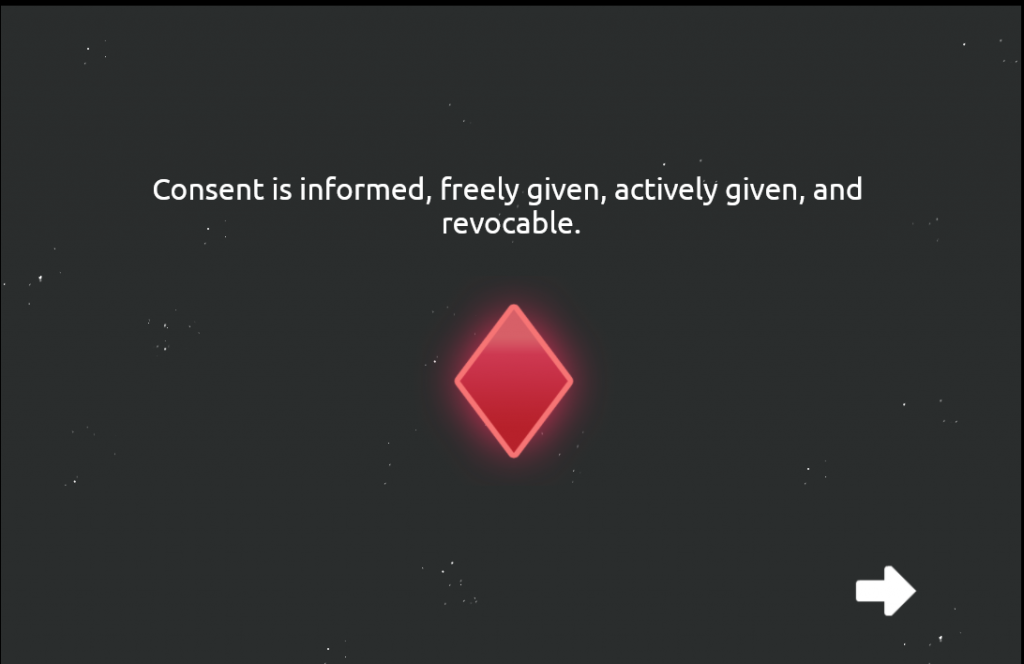
Crossley did a couple of museum projects, and even developed some games for PBS Kids. They took a break during the COVID-19 pandemic and worked as a technical writer in the corporate world. He is currently traveling and aspires to visit all 50 states. So far, he’s already visited at least 35 states with his dog.
As Crossley and Connell work in their new roles and consider plans to reunite, they can feel confident that at any given time somebody, somewhere, is learning about the meaning and importance of consent through the clever little game they created.
Support this work by donating online:
PayPal
Apple Pay
Gaming Against Violence is an award-winning program presented by Jennifer Ann's Group, a 501(c)(3) nonprofit charity [EIN: 20-4618499].
| Play now | Play in your browser or download from the AppStore | jag.itch.io/adrift |
| Development | Quinn Crossley and Andrew Connell | |
| Produced by | Jennifer Ann’s Group | @stopTDV (Mastodon) |
| Published by | Life Love Publishing | @LifeLovePublish (Mastodon) |
| RightRating™ | Everyone | No ads. No in-app purchases. No loot boxes. No privacy tracking. |

